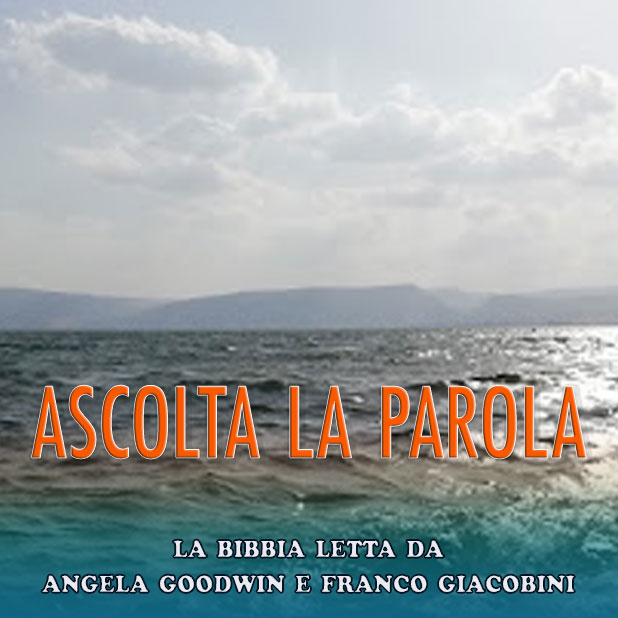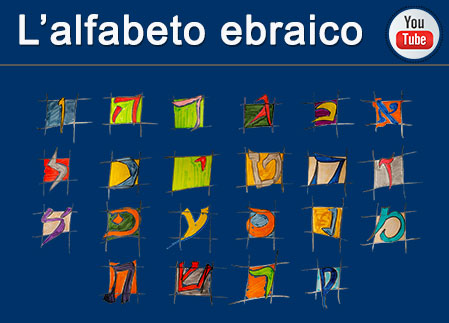International Catholic - Jewish Liaison Committee
Repubblica Ceca 06/09/1990
Representatives of the International Jewish Committee on Inter-religious Consultations and the Pontifical Commission for Religious Relations With the Jews met in Prague Sept. 3-6. This was the 13th meeting of the International Catholic-Jewish Liaison Committee.Before the deliberations began, the Catholic and Jewish delegations made a visit of homage to Theresienstadt, one of the Nazi death camps.
The last meeting of this committee took place in Rome in 1985. Difficulties which arose led to a delay of a further meeting until now. However, during these years the steering committee continued to meet on a regular basis to enable its work to proceed. In a special meeting of the Holy See's commission and IJCIC in Rome in 1987, it was foreseen that the next meeting would seek to lay the basis for the presentation of a Catholic document on the Shoah, the historical background of anti-Semitism and its contemporary manifestations. The intention to prepare such a document was confirmed by the Holy See's commission.
In this connection, the meeting in Prague discussed the religious as well as the secular basis of anti-Semitism over the past 1,900 years and its relationship to the Shoah. This discussion led to the recognition that certain traditions of Catholic thought, teaching, preaching and practice in the patristic period and in the Middle Ages contributed to the creation of anti-Semitism in Western society. In modern times many Catholics were not vigilant enough to react against manifestations of anti-Semitism. The Catholic delegates condemned anti-Semitism as well as all forms of racism as a sin against God and humanity, and affirmed that one cannot be authentically Christian and engage in anti-Semitism.
At the conference, Jewish and Catholic witnesses to the Shoah spoke of their experiences. They offered testimony that many Christians failed themselves as well as Jews and other victims by too weak a response to Nazi and fascist ideologies. Witness was also given to the many courageous Christian church leaders and members who acted to save Jews, thereby risking their own lives during the Nazi terror. Nor was it forgotten that people other than Jews also perished.
The conference acknowledged the monumental role of the declaration of the Second Vatican Council Nostra Aetate as well as later efforts by the popes and church officials to bring about a substantive improvement in Catholic-Jewish relations.
Nostra Aetate created a new spirit in these relationships. Pope John Paul II expressed that new spirit in an audience with Jewish leaders on Feb. 15, 1985, when he said,
"The relationships between Jews and Christians have radically improved in these years. Where there was ignorance and therefore prejudice and stereotype, there is now growing mutual knowledge, appreciation and respect. There is, above all, love between us: that kind of love I mean which is for both of us a fundamental injunction of our religious traditions and which the New Testament has received from the Old."
While echoing the pope's recognition that a new spirit is in the making, the delegates called for a deepening of this spirit in Catholic-Jewish relations, a spirit which emphasizes cooperation, mutual understanding and reconciliation, good will and common goals to replace the past spirit of suspicion, resentment and distrust.
This spirit presupposes repentance as expressed by Archbishop Edward Idris Cassidy, president of the Holy See's Commission for Religious Relations with the Jews, when he said in his opening statement: "That anti-Semitism has found a place in Christian thought and practice calls for an act of teshuvah (repentance) and of reconciliation on our part as we gather here in this city, which is a testimony to our failure to be authentic witnesses to our faith at times in the past."
This new spirit would also manifest itself in the work that the two faith communities could do together to respond to the needs of today's world. This need is for the establishment of human rights, freedom and dignity where they are lacking or imperiled and for responsible stewardship of the environment. A new image and a new attitude in Jewish-Catholic relations are required to spread universally the trailblazing work that has been done in a number of communities in various parts of the world. For example, in the United States an ongoing structure engaging in Catholic-Jewish dialogue recently issued a joint document on the teaching of moral values in public education. Furthermore, the Catholic Church there is effectively working to teach Judaism in its seminaries, school texts and educational materials in a positive and objective manner, scrupulously eliminating anything that would go against the spirit of Vatican Council II.
Likewise, the Jewish community in the United States, in a growing atmosphere of confidence and trust, has conducted its own self-study of its texts in terms of what Jewish schools teach about Christians and Christianity.
Many similar examples of such Catholic and Jewish initiatives in other countries could be cited.
Over and above the study of the history of anti-Semitism, the meeting devoted special attention to recent manifestations of anti-Semitism particularly in Eastern and Central Europe. It stressed the need to disseminate the achievements of Nostra Aetate and past Catholic-Jewish dialogues in those countries where new political developments have created the possibility for cooperative work.
Recognizing the importance of widening the circulation of the teachings of Nostra Aetate, the meeting noted with satisfaction the establishment of joint Jewish-Christian liaison committees in Czechoslovakia and Hungary and the diffusion by the Polish church authorities of official documents concerning Catholic-Jewish relations in their own language.
It was stressed that systematic efforts must be made to uproot sources of religious anti-Semitism, wherever they appear, through the publication of texts, priestly training, liturgy and the use of Catholic media.
The liaison committee hopes that the new Catechism for the Universal Church now in preparation could serve as an effective instrument to this end.
With regard to the special problems of anti-Semitism in Eastern and Central Europe, the committee recommended the following:
Translation into the vernacular languages and broad dissemination of all relevant church documents on relations with Judaism (notably the Declaration on the Relation of the Church to Non-Christian Religions, Nostra Aetate (No. 4), Oct. 28, 1965; the Guidelines and Suggestions for Implementing the Conciliar Declaration Nostra Aetate (No. 4), Dec. 1, 1974; and the Notes on the Correct Way to Present Jews and Judaism in Preaching and Catechesis in the Catholic Church, June 24, 1985).
The inclusion of the teaching of these documents in the curricula of theological seminaries in order to eliminate all remnants of the "teaching of contempt" and the setting up of special courses on the same subject in the seminaries for priests who have not yet received such theological instruction.
The monitoring of all trends and events which threaten an upsurge of anti-Semitism with a view to countering promptly such developments.
Ongoing actions aimed at guaranteeing freedom of worship and religious education for all citizens (Christians, Jews and others).
Active support of general legislation against discrimination on grounds of race or religion, including anti-Semitism, and against incitement to religious or racial hatred; promotion of legislative action curtailing freedom of association to racist organizations.
Support of general educational programs which would foresee:
Inclusion in school curricula of knowledge and respect for different civilizations, cultures and religions, in particular of peoples and denominations inhabiting the national territory concerned.
Special attention to be paid in education to the problem of racial, national and religious prejudice and hatred. This should include the teaching of the history of the disasters brought about by such prejudice or hatred.
Elimination from textbooks of all racially or religiously prejudiced content and of material conducive to creating intergroup strife.
It was recommended that a special joint commission be established by the competent authorities of the respective communities in each of the countries of Eastern and Central Europe to facilitate and promote these goals. The Holy See's Commission for Religious Relations with the Jews and the IJC1C are ready to assist such efforts.
We continue to see the need, already envisaged, for closer and more rapid cooperation and exchange of information between IJCIC and the Holy See's Commission, in order to avoid future misunderstanding and face together trends and concerns within the two communities.
With regard to the Carmelite convent at Auschwitz, we note with satisfaction the declaration of the Holy See's Commission for Religious Relations with the Jews made by Cardinal Johannes Willebrands in September 1989, confirming the intention to establish in another location "a center of meeting, dialogue and prayer, as foreseen in the Geneva agreement of February 1987, which would contribute in an important way to the development of good relations between Christians and Jews."
We look to the early completion of the new edifice in which the Carmelite monastery will find its natural setting and hope that all difficulties will be overcome.
The Jewish delegation expressed its commitment to the state of Israel and stressed the need for Catholic understanding of the special place Israel has in Jewish consciousness. It manifested its concern with the lack of full diplomatic relations between the Holy See and the state of Israel.
Furthermore, the Jewish delegation expressed the hope that Vatican archival material would be made accessible for better understanding of the darkest period in Jewish history.
After two millennia of estrangement and hostility, we have a sacred duty as Catholics and Jews to strive to create a genuine culture of mutual esteem and reciprocal caring.
Catholic-Jewish dialogue can become a sign of hope and inspiration to other religions, races and ethnic groups to turn away from contempt, toward realizing authentic human fraternity.
This new spirit of friendship and caring for one another may be the most important symbol that we have to offer to our troubled world.
555 visualizzazioni.
Inserito 01/01/1970
Relazioni Ebraico-Cristiane
Ultime novità nel sito
- 19/04/2020: Articolo - L’enigma della Maddalena
- 23/02/2020: Articolo - Il locus amoenus nelle catacombe ebraiche e cristiane di Roma
- 16/02/2020: Articolo - Il profetismo nel Vicino Oriente antico
- 13/02/2020: Articolo - I Profeti della Cappella Sistina
- 09/02/2020: Articolo - Gerusalemme e la Terra Santa di Israele


